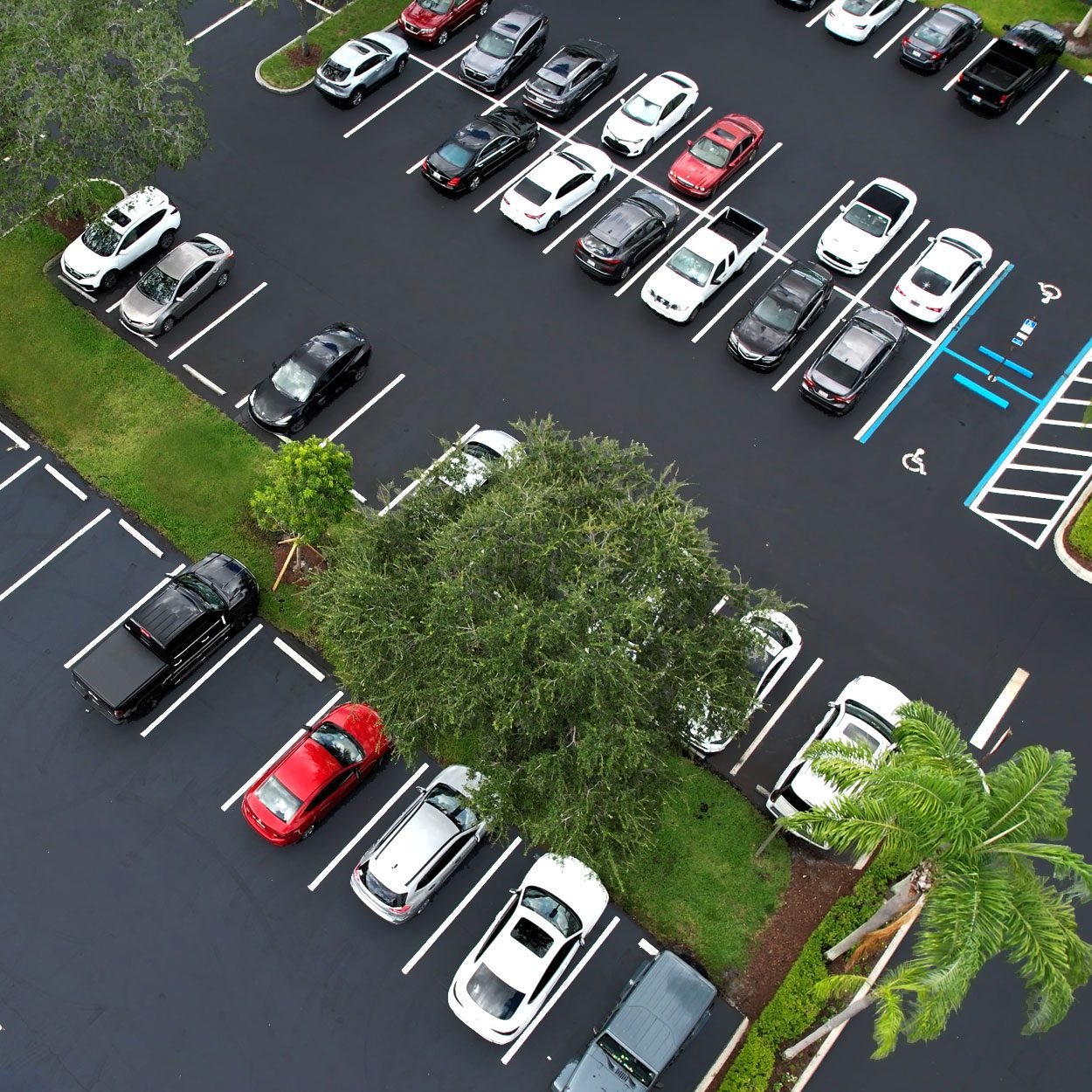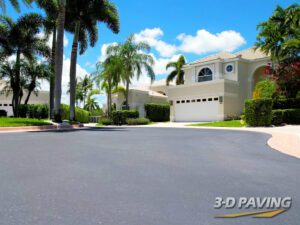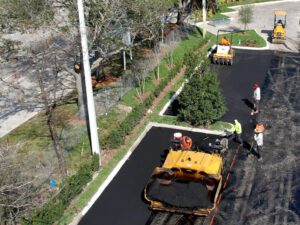Parking Lot Repairs: 10 Frequently Asked Questions About repairing your property's parking lots.
Frequently Asked Questions about Parking Lot Repairs.
One of the first things a potential client sees when visiting your property or community is your parking lots and roadways. In many cases, your parking accommodations can go a long way to forming a first impression. Let’s be honest, if you are pulling up to look at a new house and the community’s pavements look like Stalingrad during WWII, you won’t necessarily form the best impression. In a world where first impressions can be everything, parking lot repairs are essential in maintaining the curb appeal, safety and overall value of your property. For South Florida HOAs and Community Associations, it’s important to understand when and how to repair a parking lot. To help you out, we’ve answered some of the most frequently asked questions about parking lot repairs.
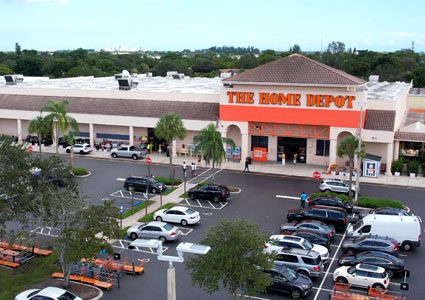
1. How often should I be inspecting my parking lots?
It’s recommended that you inspect your parking lots at least once a year, but for properties located in areas with more extreme weather conditions, twice-yearly inspections may be necessary. During these inspections, look for signs of damage such as potholes, cracks, and uneven surfaces. These can all be indicators of underlying issues that need to be addressed by a professional. Have questions? Call us toll free 1-855-735-7623.
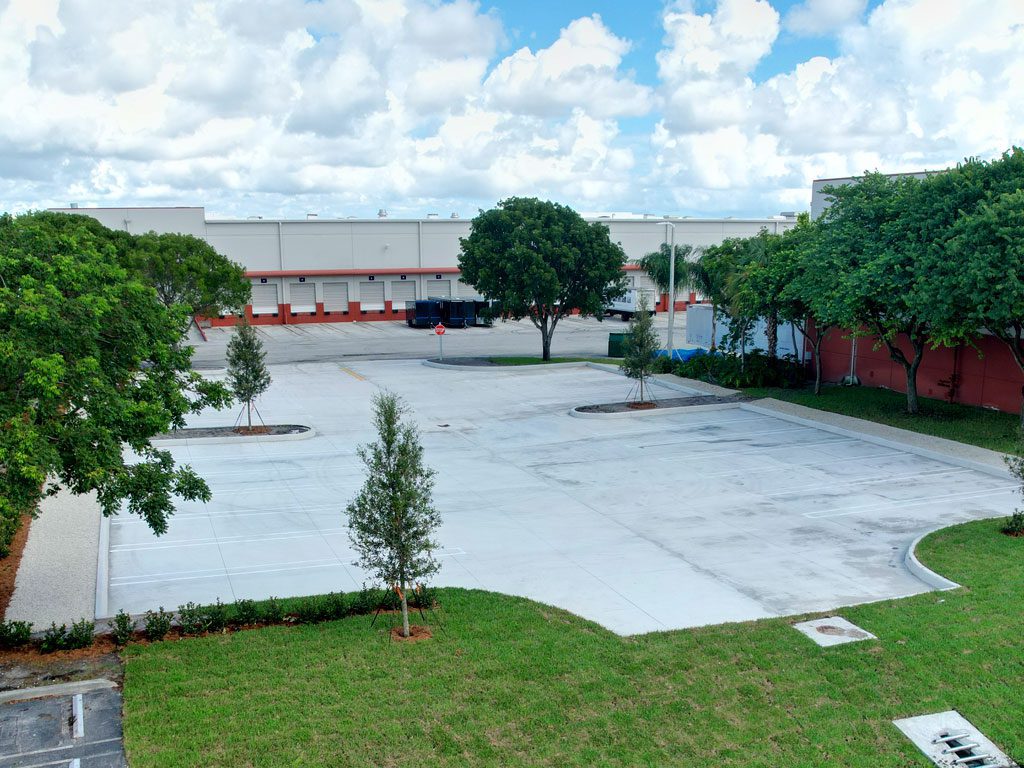
2. What are the different types of repairs available?
The type of repair needed will depend on the condition and age of your parking lot surface. The most common types of repairs include asphalt paving, patching/filling cracks and potholes; resurfacing with asphalt or concrete; sealcoating; striping including thermoplastic; ADA compliance and compliant parking lot signage; traffic lines, arrows and much more.
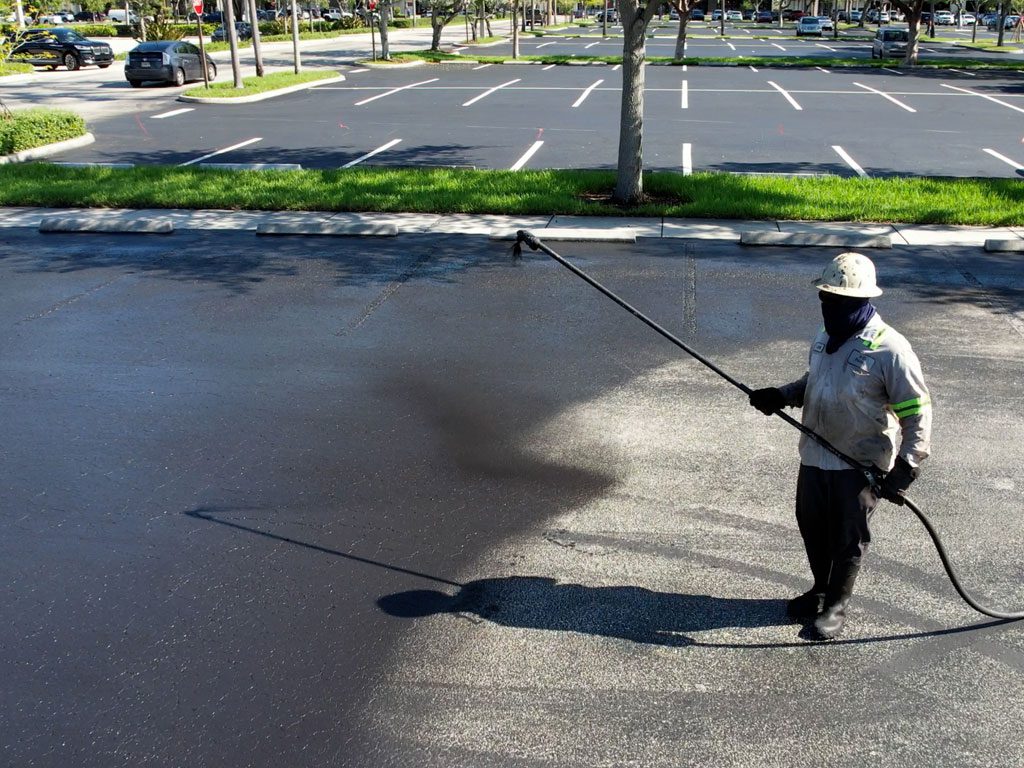
3. How long does it take for repairs to be completed?
In most cases, it takes 1-2 days for asphalt repairs to be completed depending on the size and scope of the project. Concrete repairs usually take longer due to curing times but can also be completed in 1-2 days depending on the size of the project and any additional work that needs to be done first before beginning repairs (i.e., removal/replacement).
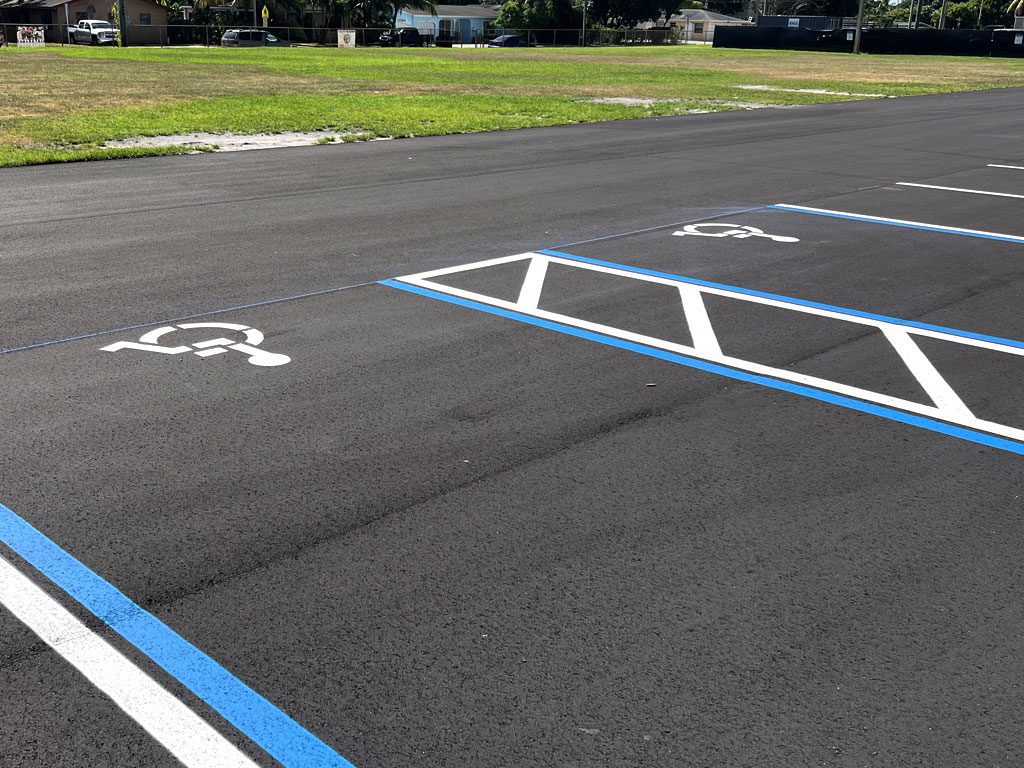
4. Can I do my own parking lot repairs?
It’s not recommended as DIY asphalt or concrete repairs can lead to further complications down the road if not done correctly or with proper materials/equipment which could result in costly future repairs being required sooner than expected had they been done professionally from the start. Additionally, improper DIY methods may not meet local codes and regulations which could lead to fines from local authorities if discovered during an inspection/audit process conducted by representatives from your city/county government agency(s).
5. Is there any maintenance I can do regularly between professional services?
Yes! Regularly cleaning debris off your parking lots is one way you can maintain them between professional services such as sealcoating or resurfacing services which should only be performed every 3-5 years depending on usage levels and location (more extreme climates will require more frequent maintenance). Additionally, keeping an eye out for any potential hazards such as oil spills should also be done regularly so they can quickly be addressed before they become bigger problems down the road (such as staining/discoloration).
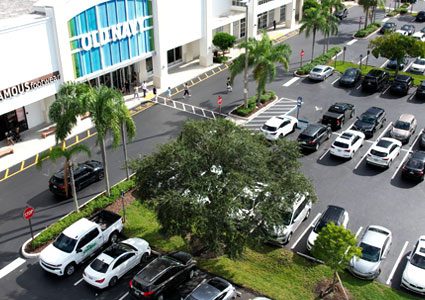
6. What are some potential hazards that need special attention?
Oil spills are one potential hazard that needs special attention as they can cause permanent staining/discoloration if left unchecked over time – especially when temperatures increase during hotter months in Florida! Other potential hazards include damaged curbs & gutters, broken guardrails & fences around perimeter areas (which may present trip hazards), broken lighting fixtures & poles (which could present slip & fall risks) etc… All should receive prompt attention when identified so they don’t get worse over time leading to increased costs associated with future repair work needed due to negligence now!
7. Are there any regulations I need to follow when making parking lot repairs?
Yes! When making changes or modifications within public spaces like sidewalks & streetscapes it’s important that you comply with all local codes & regulations pertaining thereto – this includes things like obtaining permits where necessary prior to performing any type of construction activity within these areas under jurisdiction by local authorities responsible for managing public infrastructure within their respective jurisdictions (usually City Hall). Additionally, these changes must also meet accessibility standards set forth by relevant governing bodies such as those outlined under Americans With Disabilities Act (ADA) guidelines which focus on providing accessibly designed public spaces including sidewalks & streetscapes accessible by persons with disabilities so they too have full enjoyment thereof just like everyone else!
8. Do I need a permit before starting any kind of repair work on my property?
Yes – Depending on what type of repair work you’re planning on doing within certain public spaces like sidewalks & streetscapes mentioned above will determine whether or not permits are required prior thereto being started – this is generally handled through local government agencies responsible for managing public infrastructure within their jurisdictions so make sure you check ahead with them first before beginning any type work in order avoid running into unnecessary delays due lack thereof being obtained beforehand!
9. Are there any environmental considerations I need to keep in mind when making changes or modifications within public spaces like sidewalks & streetscapes?
Yes – As previously alluded too above environmental concerns come into play here too especially when dealing with things like runoff water management systems regulated under Clean Water Act guidelines which focus on minimizing impact human activities have upon natural ecosystems surrounding them so make sure whatever changes being made adhere strictly thereto avoid running afoul thereof potentially resulting hefty fines imposed by relevant governing bodies responsible enforcing said laws accordingly!
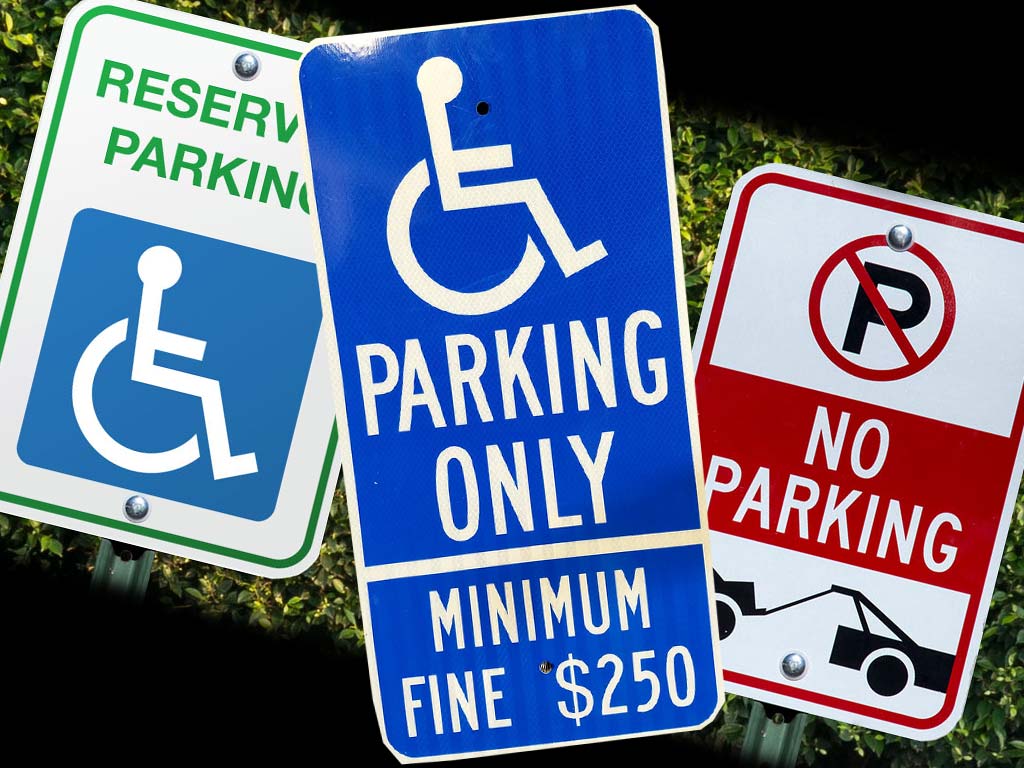
10. When should I consider repairing or resurfacing my parking lots?
If the surface of your parking lot is showing signs of wear, delamination, root damage, cracking or other damage like potholes or general degradation it’s time to consider a professional repair or resurfacing solution. It’s important to note that if left unchecked, and even though they may seem small and inconsequential, they can quickly become a nightmare. Don’t hesitate as many smaller issues can be symptomatic or precursors to much larger problems that end up requiring more extensive repairs (and cost).
South Florida Property Managers, HOAs & Community Associations have a responsibility.
And that is to ensure their parking lots, roadways and walkways are safe and up-to-date with current regulations while still staying within their given budget constraints. Knowing what questions to ask beforehand helps ensure successful outcomes every time while avoiding costly and repeated mistakes. For south Florida Property Managers and HOAs in particular, understanding the rules associated with parking lot repair & maintenance is a must. It’s important to stay up to date with local codes, and accessibility regulations outlined by the Americans With Disabilities Act. Additionally, seeking permits where necessary prior to starting any kind of repair work is essential when it comes to avoiding costly violations and mistakes down the line. We hope this information will help ensure successful outcomes on your next parking lot project.


